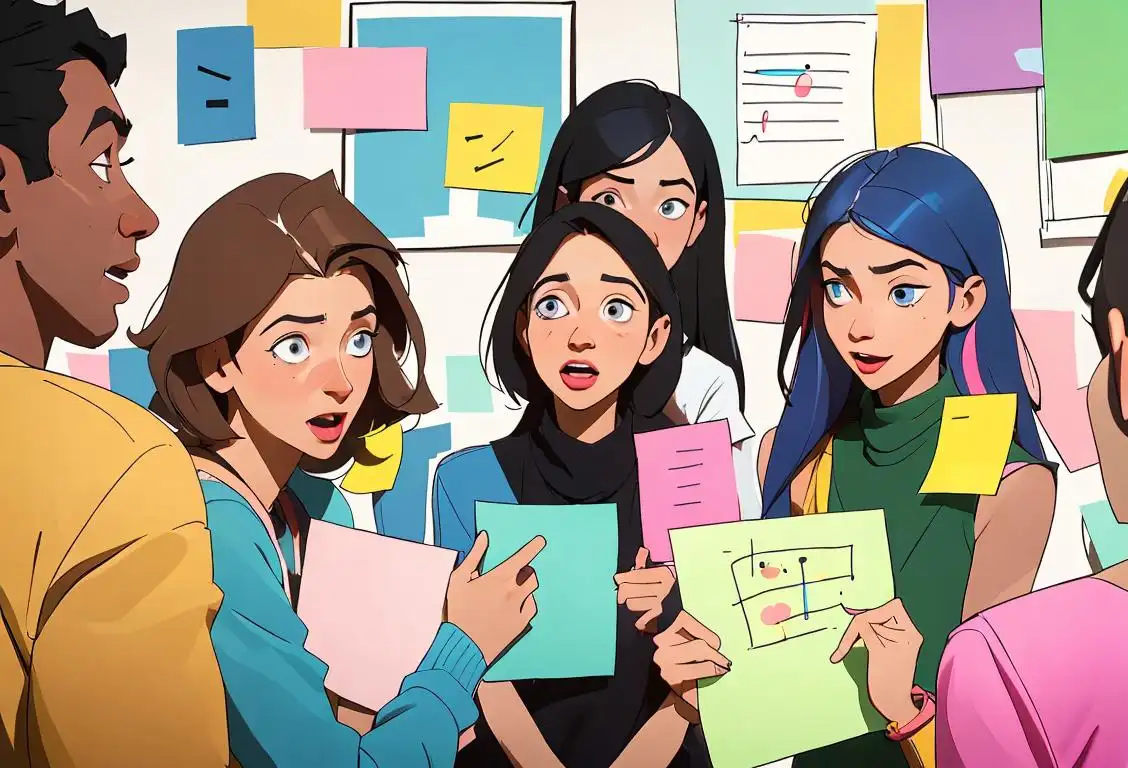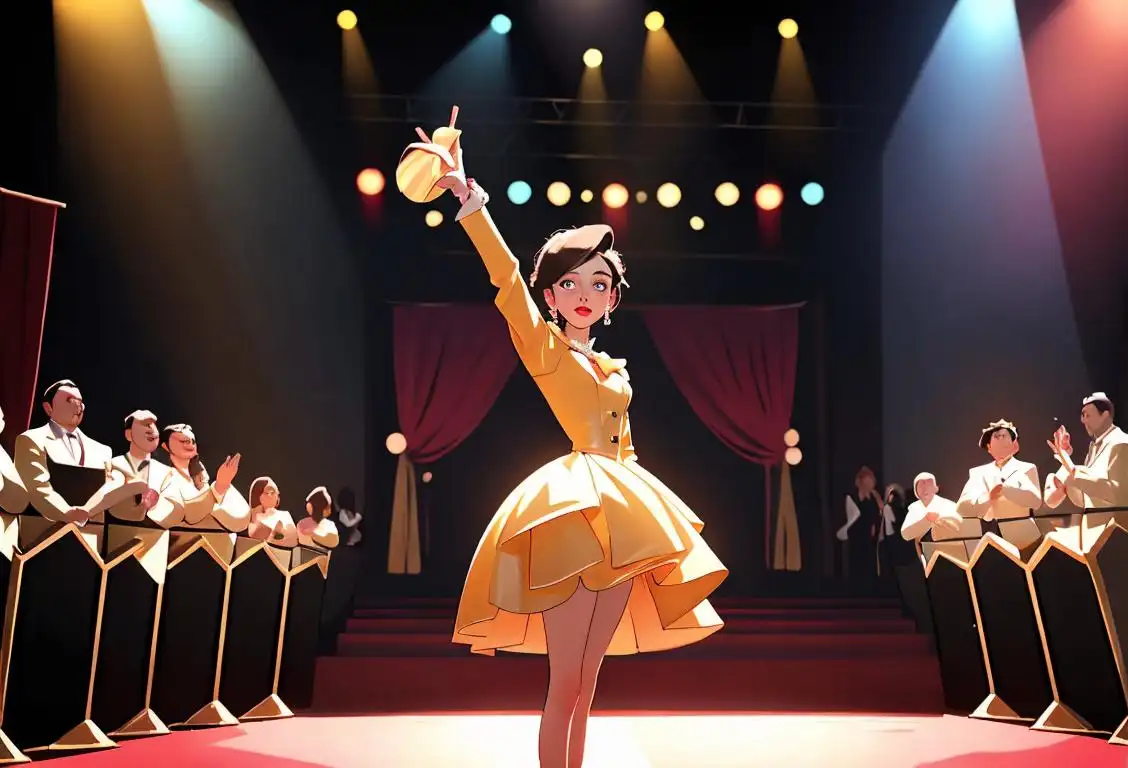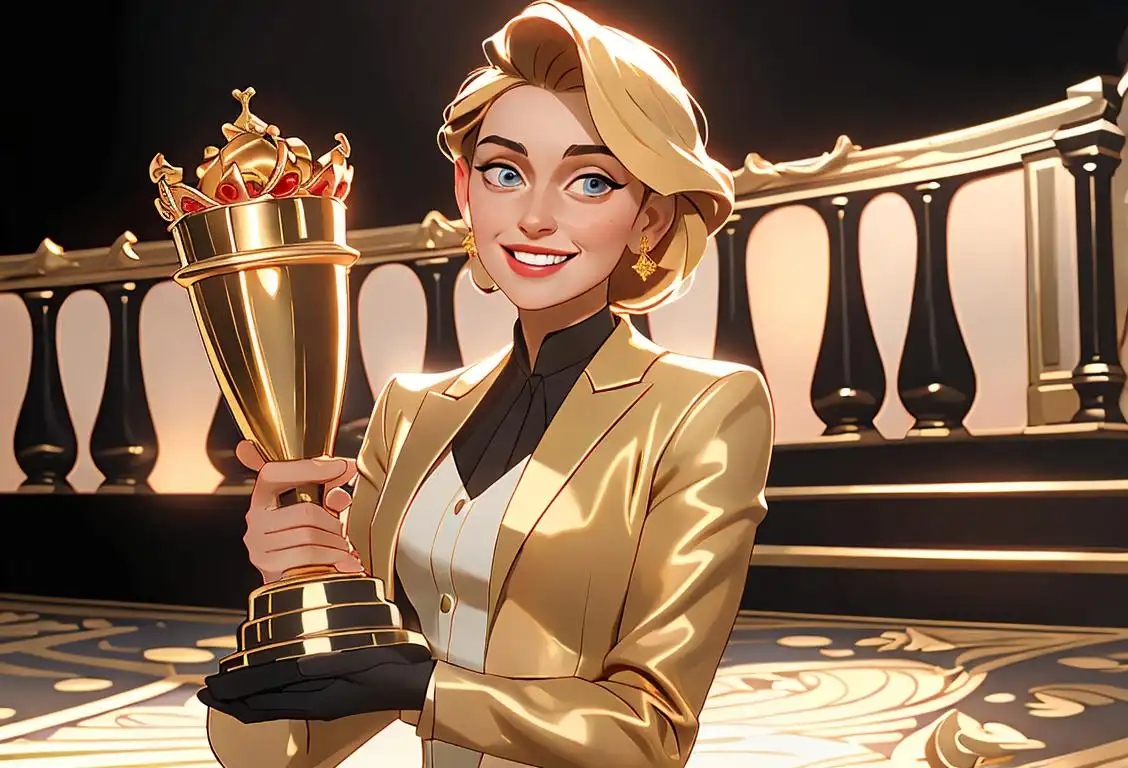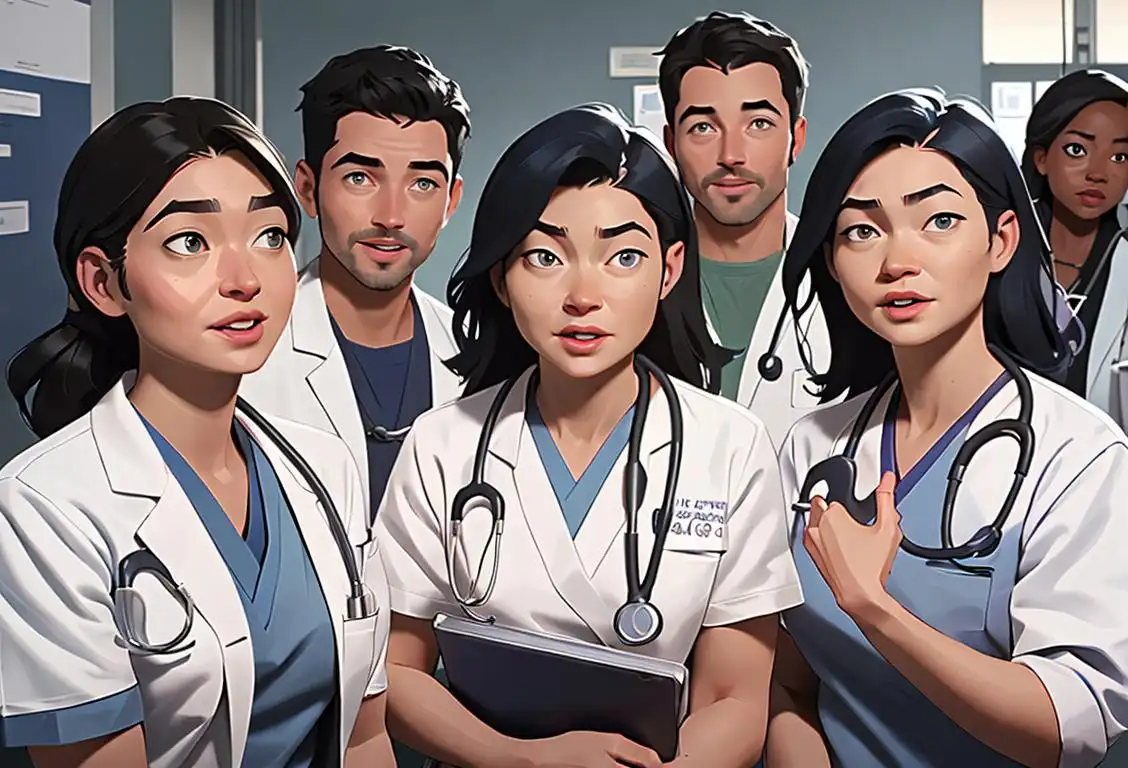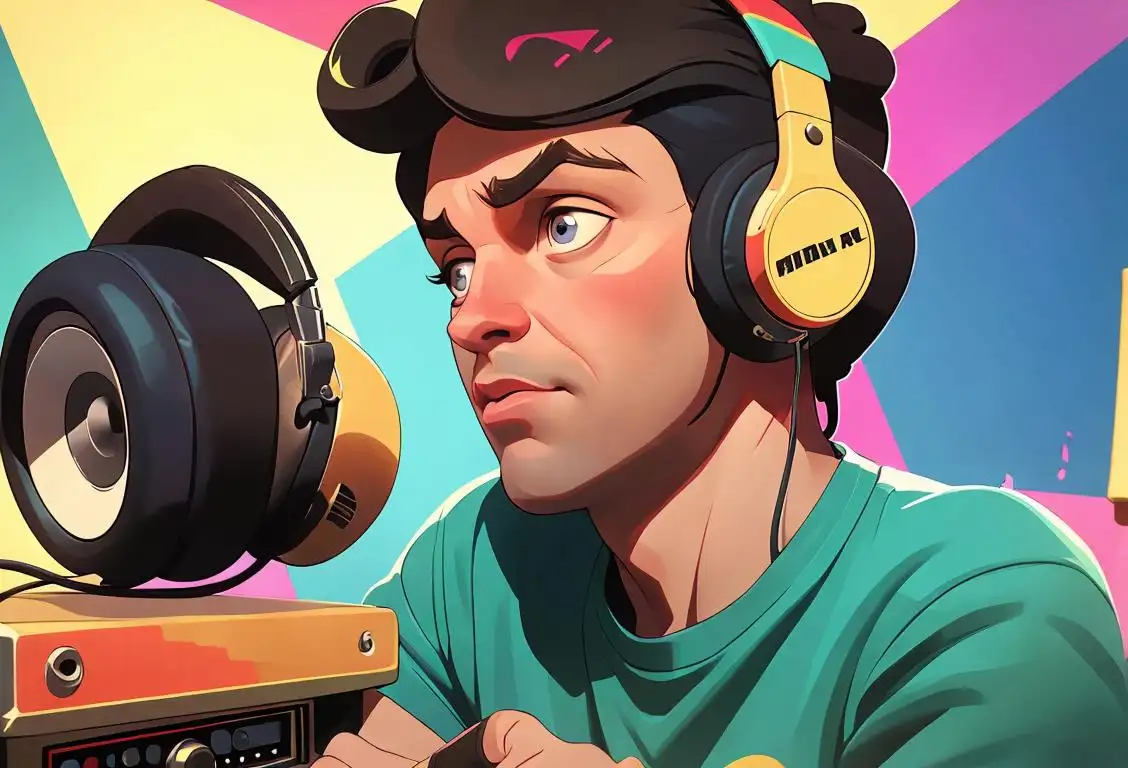National Starwars Day
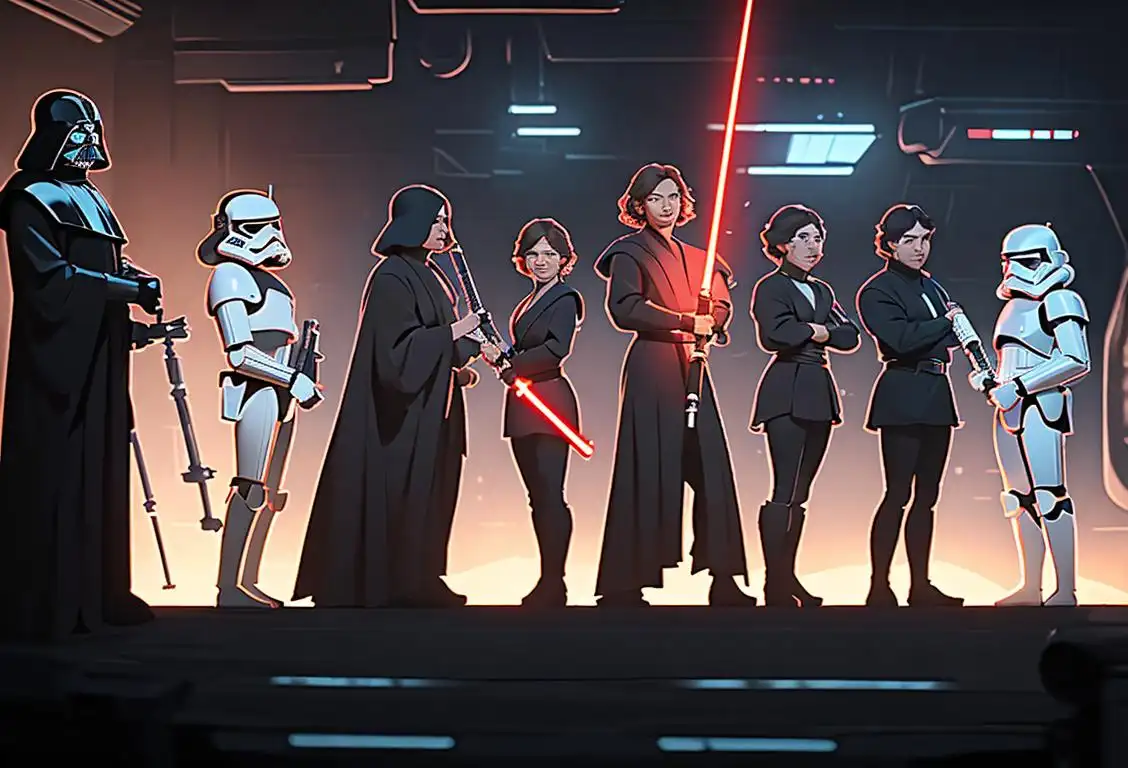
Ah, National Star Wars Day... May the fourth be with you! If you're a Jedi master of the internet, you've undoubtedly come across this epic celebration of all things Star Wars. This is the day when fangirls and fanboys unite to honor the iconic franchise and indulge in some lightsaber battles (safely, of course). So, strap yourself in, hop on board the Millennium Falcon, and prepare for a journey through the cyber galaxy as we explore the history and impact of National Star Wars Day!
When is Starwars Day?
It's national starwars day on the 4th May.
The Birth of National Star Wars Day
Long, long ago, in a digital galaxy not so far away, a group of Star Wars fans decided to create a special day dedicated to their favorite space opera. The date they picked? May 4th, of course! Why? Well, it's a play on words, my friend. 'May the fourth' sounds an awful lot like 'May the Force,' which we all know is one of the most iconic lines from the Star Wars saga. Clever, right?
Word of this unofficial holiday spread like wildfire across the interweb. Fans from all corners of the globe embraced May 4th as the day to celebrate everything Star Wars. It's a day filled with marathons of the movies, cosplay galore, and an endless supply of Star Wars-themed memes flooding our social media feeds. It's a geek's dream come true!
The Force Awakens on the Internet
The digital realm has always been a hot spot for Star Wars enthusiasts. From forums and fan sites to memes and gifs, the internet is teeming with Star Wars goodness. However, National Star Wars Day takes the online celebration to a whole new level. On this day, the force is strong with the internet as it becomes a vortex of Star Wars-related content.
Social media platforms explode with hashtags like #MayTheFourthBeWithYou and #StarWarsDay, drawing millions of fans together in a galactic union. People proudly display their love for the franchise by sharing their favorite moments, fan theories, and epic cosplay creations. It's a day where the world becomes one big Star Wars family, united in their love for a galaxy far, far away.
May the Fourth be with You: A Universal Celebration
National Star Wars Day isn't just confined to the online realm. It has inspired events, parties, and gatherings around the world. Fans flock to conventions dressed as their favorite characters, engaging in lightsaber duels, and engaging in trivia battles to prove their Star Wars knowledge. The force is truly everywhere on this day!
But wait, there's more! National Star Wars Day has even been recognized by the official Star Wars franchise. From epic sales on Star Wars merchandise to surprise announcements and exclusive releases, the day has become a global phenomenon that even Darth Vader would be proud of. It's safe to say that May the 4th has become a date firmly etched into the calendars of Star Wars fans everywhere.
History behind the term 'Starwars'
1977
A Galactic Phenomenon
In 1977, George Lucas introduced the world to an epic space opera film called 'Star Wars.' It became an instant hit and captured the imagination of millions of viewers. The term 'Star Wars' referred to the ongoing battle between the Rebel Alliance and the evil Galactic Empire in a distant galaxy.
1977
The Birth of a Saga
In 1977, George Lucas unleashed 'Star Wars' onto the world. Little did he know that the term 'Star Wars' would become synonymous with a cultural phenomenon that would captivate generations to come. The epic space opera introduced audiences to a galaxy far, far away and kick-started a franchise that would encompass movies, TV shows, books, toys, and more.
1977
The Birth of a Saga
In 1977, the world was introduced to the groundbreaking science fiction film 'Star Wars.' Directed by George Lucas, this space opera took audiences on an epic journey through a galaxy far, far away. The term 'Star Wars' quickly became synonymous with the franchise itself, encompassing not only the original film but also its sequels, prequels, spin-offs, and all the associated merchandising.
1977
A New Hope
In 1977, George Lucas released a game-changing movie called 'Star Wars: Episode IV - A New Hope.' The epic space opera captivated audiences with its groundbreaking special effects, thrilling storyline, and unforgettable characters. It introduced the concept of 'Star Wars' to the world, instantly becoming a cultural phenomenon.
1977
The Birth of a Cultural Phenomenon
In 1977, the term 'Star Wars' burst onto the scene as the title of the first film in what would become one of the most iconic and beloved movie franchises of all time. Directed by George Lucas, 'Star Wars' introduced audiences to a galaxy far, far away, filled with epic space battles, mystical Jedi knights, and memorable characters like Luke Skywalker, Princess Leia, and Darth Vader. The film captivated audiences with its groundbreaking special effects, thrilling story, and innovative use of sound design. 'Star Wars' quickly became a cultural phenomenon, launching the term into popular consciousness.
1977
The Birth of a Cultural Phenomenon
In 1977, director George Lucas released a groundbreaking science fiction film called 'Star Wars.' The movie took audiences on an epic space adventure, featuring a cast of memorable characters, thrilling action sequences, and groundbreaking special effects. 'Star Wars' was an instant hit and became a cultural phenomenon, captivating audiences around the world.
1973
Lucas starts working on Star Wars
In 1973, George Lucas began working on an idea for a space fantasy film. He was heavily influenced by classic science fiction, samurai films, and various mythologies from around the world. Lucas envisioned a story that would captivate audiences with its epic battles, memorable characters, and timeless moral lessons.
1975
The beginning of a galactic saga
In 1975, filmmaker George Lucas conceived the idea for a space-fantasy film that eventually became known as 'Star Wars.' Inspired by classic adventure serials and mythology, Lucas began to lay the foundation for a captivating cinematic saga set in a galaxy far, far away.
1983
Expansion and Cultural Phenomenon
With the release of 'Star Wars: Episode VI - Return of the Jedi' in 1983, the 'Star Wars' saga cemented its place as a cultural phenomenon. The term 'Star Wars' became deeply ingrained in popular culture, as fans eagerly embraced the story, characters, and iconic spaceships like the Millennium Falcon and X-Wing fighters. The franchise transcended the world of cinema and inspired the imaginations of millions, captivating both young and old alike.
1977
A New Hope lights up the silver screen
On May 25, 1977, 'Star Wars: Episode IV - A New Hope' hit theaters across the United States. The film, featuring iconic characters like Luke Skywalker, Princess Leia, Darth Vader, and Han Solo, took the world by storm, revolutionizing the way movies were made and captivating audiences with its mix of mythological storytelling, groundbreaking special effects, and thrilling space battles.
1977
Star Wars movie released
In 1977, the first Star Wars movie was released. Titled 'Star Wars Episode IV: A New Hope,' it was later renamed to simply 'Star Wars.' The film was an instant success, surpassing all expectations. Its groundbreaking special effects, thrilling storyline, and iconic characters like Luke Skywalker, Princess Leia, and Darth Vader made it a cultural phenomenon.
1980
The Empire Strikes Back
Following the massive success of 'Star Wars: A New Hope,' the saga continued in 1980 with the release of 'Star Wars: Episode V - The Empire Strikes Back.' The film further expanded the 'Star Wars' universe, introducing iconic characters like Yoda and unveiling shocking revelations that left audiences eagerly anticipating the next installment.
1980
The Empire Strikes Back and the Expansion of the Universe
In 1980, the highly anticipated sequel to 'Star Wars' was released, titled 'The Empire Strikes Back.' This second installment further solidified the term 'Star Wars' as a force to be reckoned with in the entertainment industry. 'The Empire Strikes Back' introduced new characters like Yoda, the wise and powerful Jedi Master, and explored the darker side of the story, deepening the narrative and expanding the universe created by George Lucas. The film's success cemented 'Star Wars' as a franchise with immense cultural impact, captivating audiences and inspiring a generation of fans.
1978
Trademark Registration
One year after the release of 'Star Wars', Lucasfilm Ltd. filed a trademark registration for the term 'Star Wars', solidifying its official use in association with the franchise. This legal step ensured that the term would be protected and could not be used without permission, further solidifying its cultural significance.
1978
The Rise of Merchandise
Following the massive success of the film, 'Star Wars' merchandise began flooding the market. From action figures and toys to clothing and lunch boxes, the demand for 'Star Wars' products skyrocketed. The merchandising of 'Star Wars' not only brought in significant revenue but also solidified the franchise's place in popular culture.
1980
The Sequel Strikes Back
Three years after the first film's release, 'Star Wars: Episode V - The Empire Strikes Back' hit theaters in 1980. This sequel further fueled the popularity of the term 'Star Wars' and solidified its place in pop culture. The movie introduced iconic characters like Yoda and expanded the lore of the 'Star Wars' universe.
1980
The Empire Strikes Back
In 1980, the second installment in the Star Wars saga, 'The Empire Strikes Back,' was released. Directed by Irvin Kershner, this film delved deeper into the ongoing galactic conflict and introduced new characters like Yoda and Lando Calrissian. It is considered by many to be one of the best sequels ever made and added further depth and complexity to the Star Wars universe.
1980
The Empire Strikes Back
In 1980, the second installment of the original trilogy, 'Star Wars: Episode V - The Empire Strikes Back,' was released. The film further expanded the 'Star Wars' universe, introduced iconic characters like Yoda and Lando Calrissian, and left audiences with an unforgettable cliffhanger ending. 'The Empire Strikes Back' received critical acclaim and solidified the franchise's status as a beloved series.
1999
Prequel Power
In 1999, George Lucas took fans back in time with the release of 'Star Wars: Episode I - The Phantom Menace.' This marked the beginning of the prequel trilogy, delving into the origins of key characters and events. The prequels reinvigorated the 'Star Wars' franchise, attracting a new generation of fans and keeping the term 'Star Wars' relevant.
1983
Return of the Jedi and the Conclusion of the Original Trilogy
In 1983, the third and final installment of the original 'Star Wars' trilogy, titled 'Return of the Jedi,' hit the big screen. This marked the conclusion of the epic saga that had captured the hearts and imaginations of millions. 'Return of the Jedi' wrapped up the storylines of beloved characters and provided a satisfying conclusion to the narrative arc. The term 'Star Wars' had become deeply ingrained in pop culture, with merchandise, spin-off books, and even a Saturday morning cartoon series. The original trilogy's success laid the foundation for the enduring legacy of 'Star Wars' and set the stage for future expansions of the franchise.
1980
The Empire Strikes Back
The release of 'Star Wars: Episode V - The Empire Strikes Back' in 1980 deepened the mythology of the Star Wars universe. This sequel further explored the epic struggle between the Rebel Alliance and the evil Galactic Empire, introducing beloved characters such as Yoda and Lando Calrissian while also revealing the shocking revelation of Darth Vader's true identity.
1983
Return of the Jedi
In 1983, the original 'Star Wars' trilogy concluded with 'Star Wars: Episode VI - Return of the Jedi.' The film showcased an epic final battle between the Rebel Alliance and the Galactic Empire, while also delving deeper into the complex relationships between characters. 'Return of the Jedi' solidified 'Star Wars' as a pop culture phenomenon.
1999
The Prequel Trilogy
In 1999, George Lucas unveiled the first installment of the prequel trilogy with 'Star Wars: Episode I - The Phantom Menace.' This new chapter in the 'Star Wars' saga brought back familiar characters and introduced a new generation of fans to the epic story. The term 'Star Wars' continued to be synonymous with the ongoing narrative, expanding the lore and deepening the connection between fans and the franchise.
1980
The Empire Strikes Back
In 1980, 'Star Wars: Episode V - The Empire Strikes Back' was released. This second installment of the original trilogy further cemented the term 'Star Wars' in popular culture. The film introduced iconic characters like Yoda, Lando Calrissian, and Boba Fett, while also deepening the narrative and expanding the mythology of the 'Star Wars' universe.
1999
The Prequel Era
The term 'Star Wars' underwent a resurgence in 1999 with the release of 'Star Wars: Episode I - The Phantom Menace'. This marked the beginning of the prequel trilogy, exploring the origins of characters like Anakin Skywalker and Obi-Wan Kenobi. The prequel era brought 'Star Wars' back to the forefront of popular culture and introduced a new generation of fans to the franchise.
1983
Return of the Jedi
In 1983, the original 'Star Wars' trilogy concluded with the release of 'Star Wars: Episode VI - Return of the Jedi.' The film showcased the final battle between the Rebel Alliance and the Galactic Empire, resolving key storylines and providing closure for the beloved characters. 'Return of the Jedi' was another box office success and solidified 'Star Wars' as one of the most influential film franchises in history.
1983
Return of the Jedi
The original Star Wars trilogy concluded with 'Star Wars: Episode VI - Return of the Jedi' in 1983. The film showcased the final battle against the Empire and unveiled the redemption of Darth Vader, bringing closure to the story of Luke Skywalker's journey to become a Jedi Knight. Audiences around the world bid farewell to beloved characters and celebrated the triumph of good over evil.
2012
Disney Acquires Lucasfilm
In 2012, The Walt Disney Company acquired Lucasfilm, the production company founded by George Lucas. This acquisition meant that Disney now owned the 'Star Wars' franchise, opening up a new chapter for the term 'Star Wars' in terms of movies, TV shows, and merchandise. Disney's involvement further expanded the reach and popularity of the 'Star Wars' phenomenon.
1999
The Prequel Trilogy Begins
In 1999, George Lucas returned to the 'Star Wars' universe with the release of 'Star Wars: Episode I - The Phantom Menace,' the first installment of a new prequel trilogy. This trilogy aimed to explore the events leading up to the original trilogy, diving into the origins of iconic characters and showcasing the rise of Darth Vader. While the prequel trilogy received mixed reviews from fans and critics, it continued to generate widespread interest and keep the term 'Star Wars' in the public eye. The prequel trilogy also introduced new technologies and pushed the boundaries of visual effects, showcasing Lucas' commitment to innovation.
1983
Return of the Jedi
In 1983, the original Star Wars trilogy concluded with 'Return of the Jedi.' Directed by Richard Marquand, the film tied up loose ends and introduced the battle against the Emperor and his Sith apprentice, Darth Vader. 'Return of the Jedi' brought the epic saga to a satisfying close and left a lasting impact on pop culture.
2012
Acquisition by Disney
In 2012, Disney acquired Lucasfilm, the company founded by George Lucas, and with it, the 'Star Wars' franchise. The acquisition brought fresh energy and resources to the saga, leading to the release of the sequel trilogy, starting with 'Star Wars: Episode VII - The Force Awakens' in 2015. Under Disney's stewardship, 'Star Wars' continued to capture the imagination of audiences worldwide, ensuring its enduring legacy for future generations.
1999
The Prequel Trilogy Begins
After a long hiatus, 'Star Wars' returned to the big screen in 1999 with the release of 'Star Wars: Episode I - The Phantom Menace.' This marked the beginning of the prequel trilogy, exploring the origin story of iconic characters like Anakin Skywalker (Darth Vader) and Obi-Wan Kenobi. Despite mixed reception, the film reignited interest in the 'Star Wars' franchise.
1999
The Prequel Trilogy Begins
In 1999, George Lucas returned to the 'Star Wars' universe with the release of 'Star Wars: Episode I - The Phantom Menace.' This marked the beginning of the prequel trilogy, which aimed to provide a backstory to the events of the original trilogy. While the prequels divided fans and critics, they further expanded the 'Star Wars' lore and introduced new generations to the franchise.
2019
The Rise of Skywalker
The term 'Star Wars' reached another milestone in 2019 with the release of 'Star Wars: Episode IX - The Rise of Skywalker.' This film marked the conclusion of the Skywalker saga, spanning over four decades. The term 'Star Wars' had become ingrained in our collective consciousness, symbolizing not only a series of films but also the impact it had on popular culture, inspiring countless fans, and spawning an entire universe of stories.
1999
The Phantom Menace emerges
In 1999, George Lucas returned to the Star Wars universe with 'Star Wars: Episode I - The Phantom Menace.' Set before the events of the original trilogy, this prequel introduced a new generation of fans to the epic story. It also brought to life the visually stunning world of Naboo, memorable characters like Qui-Gon Jinn and Darth Maul, and the beginning of Anakin Skywalker's journey as a Jedi.
2012
A New Era with Disney's Acquisition
In 2012, The Walt Disney Company acquired Lucasfilm, the production company behind 'Star Wars.' This acquisition signaled a new era for the franchise, with Disney taking the helm and announcing new films to continue the 'Star Wars' saga. The acquisition also brought 'Star Wars' under the umbrella of one of the world's largest and most influential entertainment companies, guaranteeing its continued relevance and impact. Disney's involvement led to the production of sequels, spin-offs, and the expansion of the 'Star Wars' universe through television shows and theme park attractions.
1999
Prequel Trilogy Begins
In 1999, George Lucas took the Star Wars franchise in a new direction by releasing 'Star Wars: Episode I - The Phantom Menace.' This marked the beginning of the prequel trilogy, which explored the origins of Darth Vader and the events leading up to the original trilogy. Despite mixed reviews, the prequel trilogy expanded the Star Wars lore and introduced new generations to the galaxy far, far away.
2012
Disney Acquisition
In 2012, The Walt Disney Company acquired Lucasfilm, including the 'Star Wars' franchise. This acquisition signaled a new era for 'Star Wars', with Disney investing heavily in new movies, TV shows, merchandise, and theme park attractions. The term 'Star Wars' gained even more prominence as Disney worked to expand the universe and engage fans in a variety of exciting ways.
2012
Disney Acquisition
In 2012, to the surprise of many fans, The Walt Disney Company acquired Lucasfilm, the production company behind 'Star Wars.' This opened the doors for new stories and adventures to be told in the 'Star Wars' universe. Disney's acquisition paved the way for the highly successful sequel trilogy and numerous spin-off films and TV series.
2015
The Force Awakens
'Star Wars: Episode VII - The Force Awakens' was released in 2015, marking the beginning of a new trilogy set after the events of the original films. This highly anticipated installment reintroduced beloved characters such as Han Solo, Princess Leia, and Luke Skywalker, reigniting the passion for 'Star Wars' among fans old and new.
2012
Acquisition by Disney
In 2012, The Walt Disney Company acquired Lucasfilm, the production company behind Star Wars, from George Lucas. This acquisition allowed Disney to take charge of the Star Wars franchise and continue expanding the universe through new films, animated series, merchandise, and theme park attractions. The move brought renewed interest and enthusiasm to the beloved space saga.
2015
The Force Awakens: A New Chapter Begins
In 2015, 'Star Wars' returned to the big screen with 'Star Wars: Episode VII - The Force Awakens.' This highly anticipated film marked the beginning of a new trilogy set after the events of the original trilogy. It introduced a new generation of characters, such as Rey, Finn, and Kylo Ren, while also bringing back beloved characters like Han Solo and Princess Leia. 'The Force Awakens' became a box office sensation, reigniting the passion of longtime fans and winning over a new generation of 'Star Wars' enthusiasts. The film's success reaffirmed the enduring impact of the 'Star Wars' term and its ability to capture the imagination of audiences worldwide.
2012
Disney Acquires Lucasfilm
In 2012, The Walt Disney Company acquired Lucasfilm, the production company founded by George Lucas. This acquisition meant that future 'Star Wars' films would be produced under Disney's banner, leading to a new era of storytelling and expanded universe content. Disney's ownership has brought forth new films, TV shows, and a wider range of 'Star Wars' experiences for fans to enjoy.
2015
The Force Awakens rekindles the saga
After a long hiatus, 'Star Wars: Episode VII - The Force Awakens' arrived in 2015. This highly-anticipated sequel continued the story set after the events of 'Return of the Jedi.' Introducing new heroes such as Rey, Finn, and Poe Dameron, the film reignited the passion of old and new fans alike, immersing them in a galaxy still grappling with the remnants of the dark side.
2019
A Saga Comes to an End
In 2019, 'Star Wars: Episode IX - The Rise of Skywalker' concluded the Skywalker saga that spanned over four decades. This marked an emotional conclusion to the main 'Star Wars' storyline, leaving a lasting impact on the term 'Star Wars.' The franchise's legacy continues through other films, TV series, and an ever-expanding universe.
2015
The Force Awakens
In 2015, 'Star Wars' returned to theaters with 'Star Wars: Episode VII - The Force Awakens.' This marked the beginning of a new era for the franchise, set decades after the events of the original trilogy. The film introduced a new generation of characters, while also reuniting beloved icons from the earlier films. 'The Force Awakens' rejuvenated fan interest and set the stage for future 'Star Wars' stories.
2015
The Force Awakens
In 2015, 'Star Wars: Episode VII - The Force Awakens' was released, starting a new trilogy set after the events of the original films. This film not only revitalized the franchise for a new generation but also brought back beloved characters like Han Solo, Leia Organa, and Luke Skywalker. The term 'Star Wars' continued to dominate pop culture, becoming a global phenomenon once again.
2019
The Rise of Skywalker
The final installment of the Skywalker saga, 'Star Wars: Episode IX - The Rise of Skywalker', was released in 2019, bringing the epic story to a close. This marked the end of a 42-year-long journey that started back in 1977. The term 'Star Wars' had firmly established itself as one of the most recognizable and influential terms in the history of popular culture.
2015
The Force Awakens
In 2015, the long-awaited sequel to the original trilogy, 'Star Wars: Episode VII - The Force Awakens,' was released. Directed by J.J. Abrams, the film introduced a new generation of characters while reuniting fans with familiar faces like Han Solo, Leia Organa, and Luke Skywalker. 'The Force Awakens' captured the essence of the original films and reignited the Star Wars craze.
2019
The Rise of Skywalker
The Skywalker saga came to an end in 2019 with the release of 'Star Wars: Episode IX - The Rise of Skywalker.' This highly anticipated film wrapped up the story of Rey, Kylo Ren, and the battle between the light and dark sides of the Force. With this conclusion, the 'Star Wars' saga left an indelible mark on popular culture, inspiring generations of fans and becoming an enduring symbol of epic storytelling.
2019
The rise of the Skywalker
The Skywalker saga concluded with 'Star Wars: Episode IX - The Rise of Skywalker' in 2019. This epic finale traversed the galaxy, uniting characters from different generations in a battle against the revived Emperor Palpatine. It marked the end of an era and paid tribute to the iconic characters and moments that had become ingrained in popular culture over the course of four decades.
2015
The Force Awakens
In 2015, the 'Star Wars' saga continued with the release of 'Star Wars: Episode VII - The Force Awakens.' This marked the beginning of the sequel trilogy and introduced new characters such as Rey, Finn, and Kylo Ren. The film garnered immense excitement and shattered box office records, reigniting the 'Star Wars' craze for a new generation of fans.
2019
The Skywalker Saga concludes
In 2019, the ninth installment in the main saga, 'Star Wars: Episode IX - The Rise of Skywalker,' hit theaters, bringing the Skywalker Saga to its conclusion. Directed by J.J. Abrams, the film wrapped up the storylines of the new characters introduced in the sequel trilogy while providing closure to the Skywalker family's journey. The film marked the end of an era for Star Wars fans.
Did you know?
Did you know that the first organized celebration of National Star Wars Day took place in Toronto, Canada in 2011? It featured costume contests, film screenings, and lightsaber battles. Talk about a geek fest!Tagged
fun celebration entertainmentFirst identified
4th May 2015Most mentioned on
4th May 2015Total mentions
157Other days
Ranking Day
Audience Day
Awards The Day
Dab On Britbongs Day
Fiddle Day
Greys Anatomy Fan Appreciation Day
Radio Hall Of Fame Day
Starwars Day
Actors Day
Fucking Idiot Day
